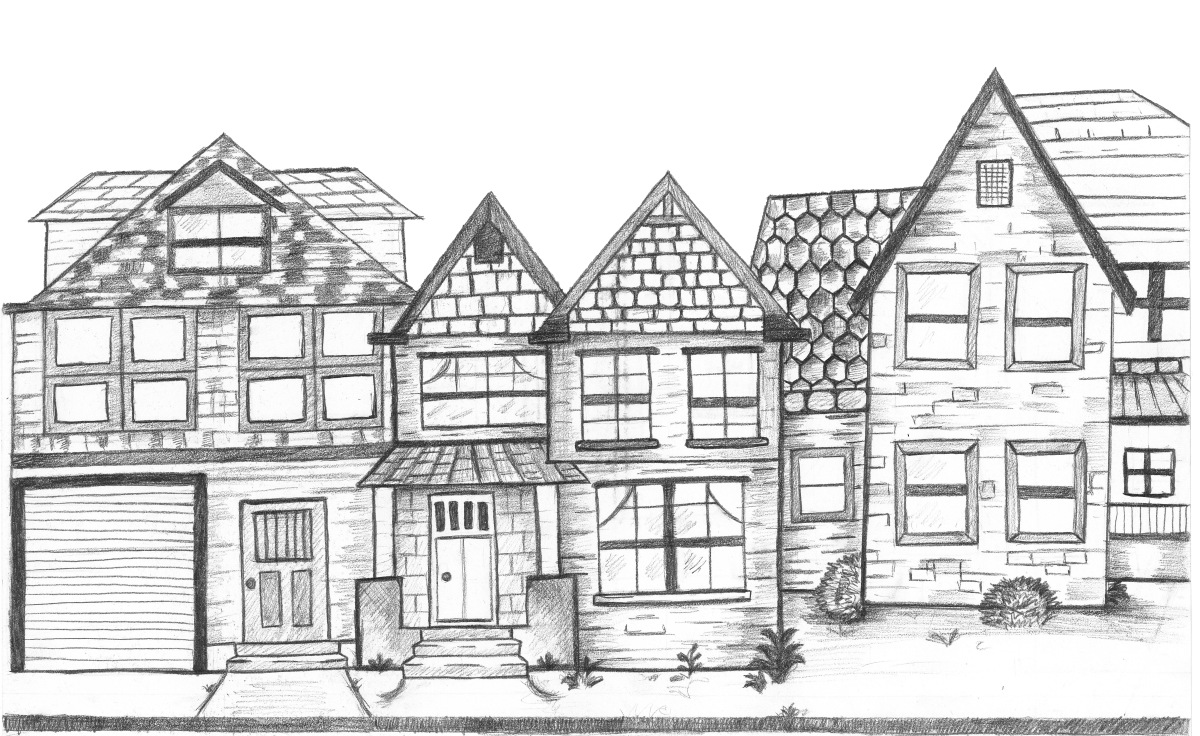By The Horns | March 29, 2023
How would you spend the city's budget? Did you know there's a way to tell them directly?
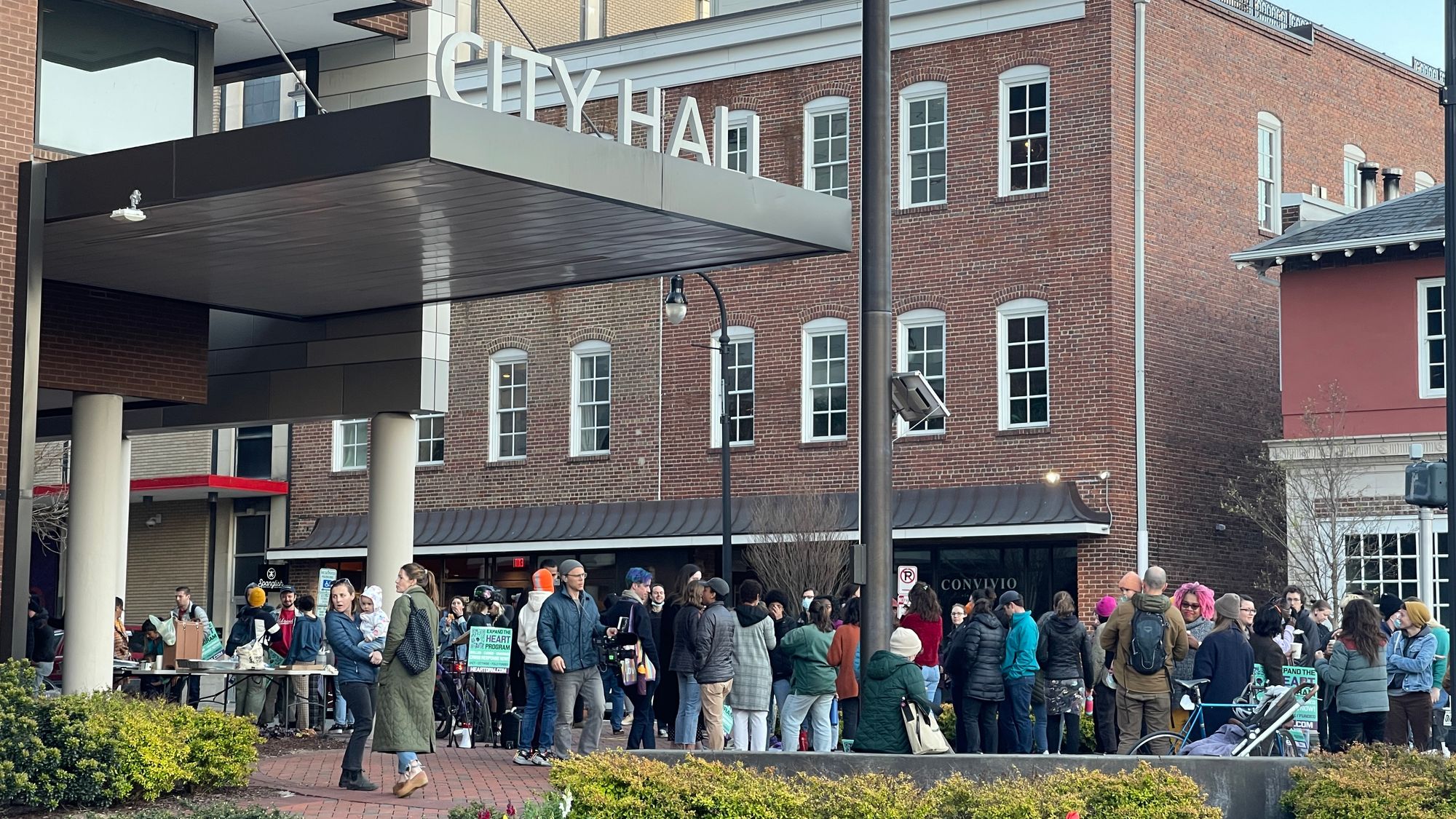
Welcome to the newest edition of By The Horns, a newsletter covering the Durham City Council. This series is intended to help guide those attempting to understand the mechanics of Durham city government, stay informed on issues throughout Durham, and learn the tools necessary to be a more engaged citizen.
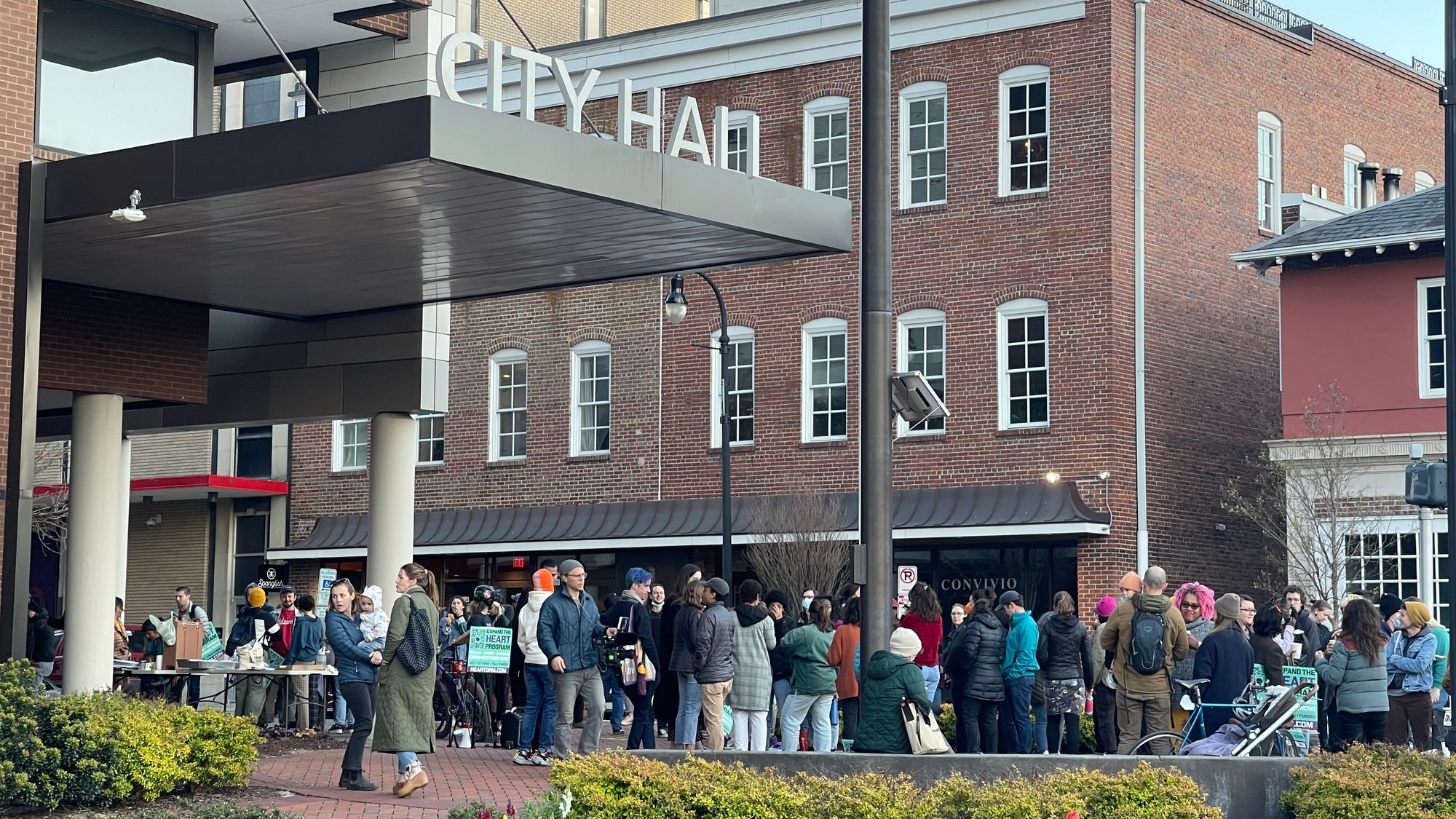
The Meeting Agenda for March 20 can be found here.
The By The Horns Resource Guide can be found here.
Intro
This last week has been exhausting. Full stop.
Between last Monday’s emotional budget hearing and Thursday’s supercharged work session, this has been a helluva rollercoaster ride. The fallout from the work session and details on the allegations against Councilor Holsey-Hyman have been well-documented by my friend Mary Helen over at the News & Observer. For this edition of By The Horns, we’re going to focus more on the budget hearing and an update on the proposed SCAD text amendments.
Disclaimer: I am a volunteer board member with Bike Durham. Representatives from our organization spoke at Monday’s budget hearing which will be covered later in the newsletter.
Call to Order
A Brief Summary of the Meeting
- Last meeting, members of the HEART program were recognized as part of National Social Work Month. Last Monday, citizens in chamber made the case to expand the HEART program across the city with around-the-clock coverage in an effort to reduce encounters with armed police and support those with mental health challenges.
- In addition to comments in favor of expanding HEART, members of the community advocated for a full-time “Vision Zero” coordinator to work across city departments on reducing traffic deaths by implementing stronger policies and building more safety infrastructure.
- After months of public community meetings, private meetings, deep dives, and bickering on Twitter (which I have shamefully participated in), the council, in a 4/3 split vote, approved a motion to postpone further action on the SCAD text amendments until May 1.
Taxation & Representation
Last Monday, city council hosted its first of two public hearings on the 2023-2024 budget. Citizens organized around two specific items: expanding the HEART program and a full-time, interdepartmental Vision Zero coordinator.
Before the meeting, Have a HEART Durham, a coalition in support of expanding HEART (but not affiliated with the city), and Bike Durham, a transit safety and advocacy nonprofit, both held rallies to garner attention for their respective causes. Have a HEART Durham hosted a gathering outside of City Hall to amplify their message before entering the chambers. Bike Durham gathered cyclists for a ride to City Hall from the intersection of W. Morgan St., Watts St. and W. Main St., the site where Durham resident Noah Goyette was seriously injured in a recent traffic incident.
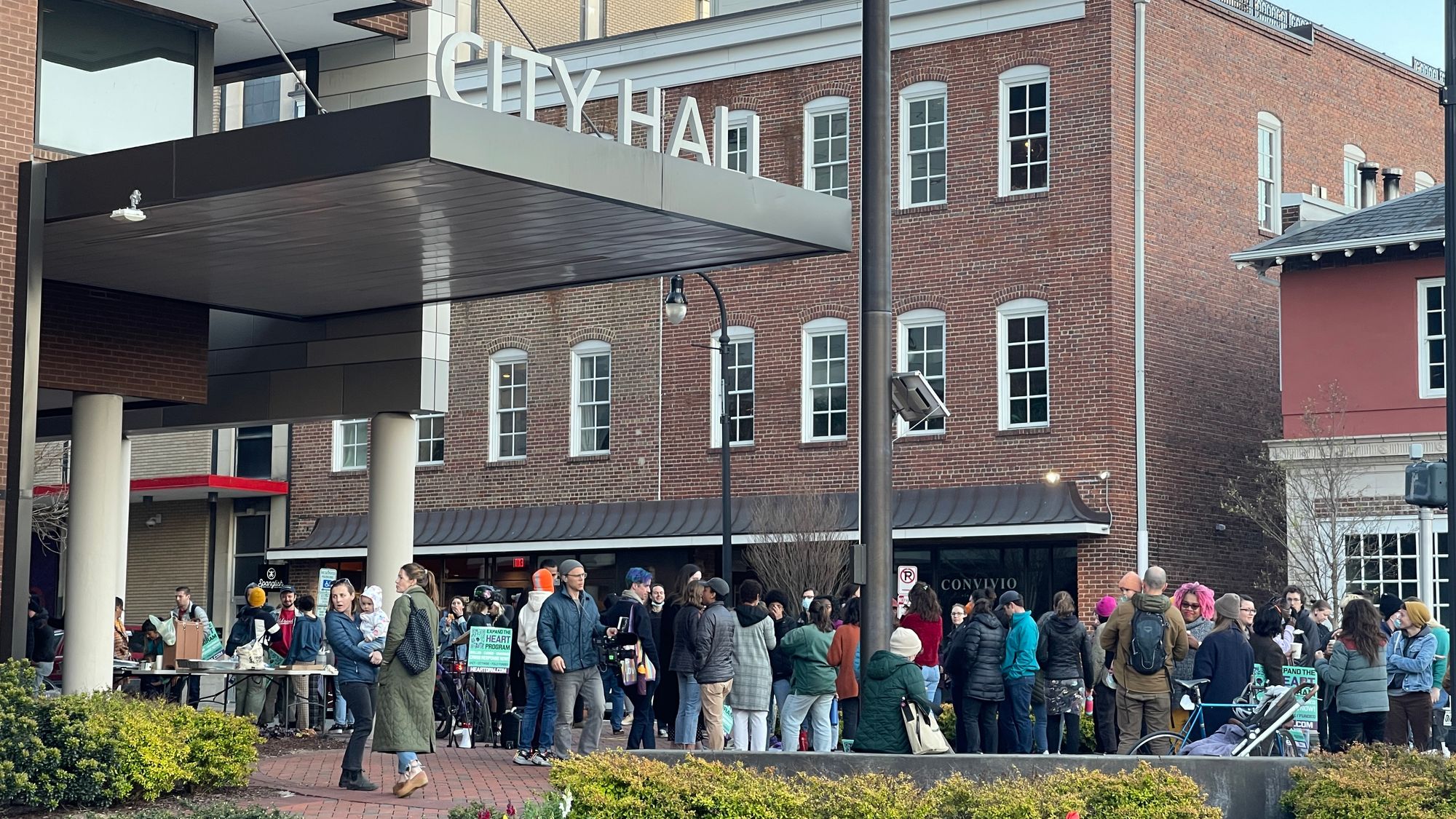
Both groups flooded the chamber at City Hall for the meeting. Folks were sitting in the area typically occupied by city staff as well as standing in the back of the room. Multiple council members noted how it was unusually crowded. Council made a point to keep the announcements and ceremonial items brief.
19 people spoke during the hearing. Notable names include:
- Allison Simpson, widow of Matthew Simpson, the man who was killed while cycling with his family on Guess Road last year. (18:18)
- John Tallmadge, executive director for Bike Durham. (27:36)
- Elliot Berger, co-owner of Regulator Bookshop on Ninth Street. (38:10)
- AJ Williams, who ran for city council in 2021. (40:00)
- Areli Barrera Grodski, co-owner of Little Waves Coffee and Cocoa Cinnamon. (44:18)
- Noah Goyette, who was seriously injured in a recent traffic incident. (47:28)
The entire 38 minutes of budget hearings is worth listening to. Folks shared impassioned speeches about the need for increased public safety infrastructure to protect some of the most vulnerable in our community.
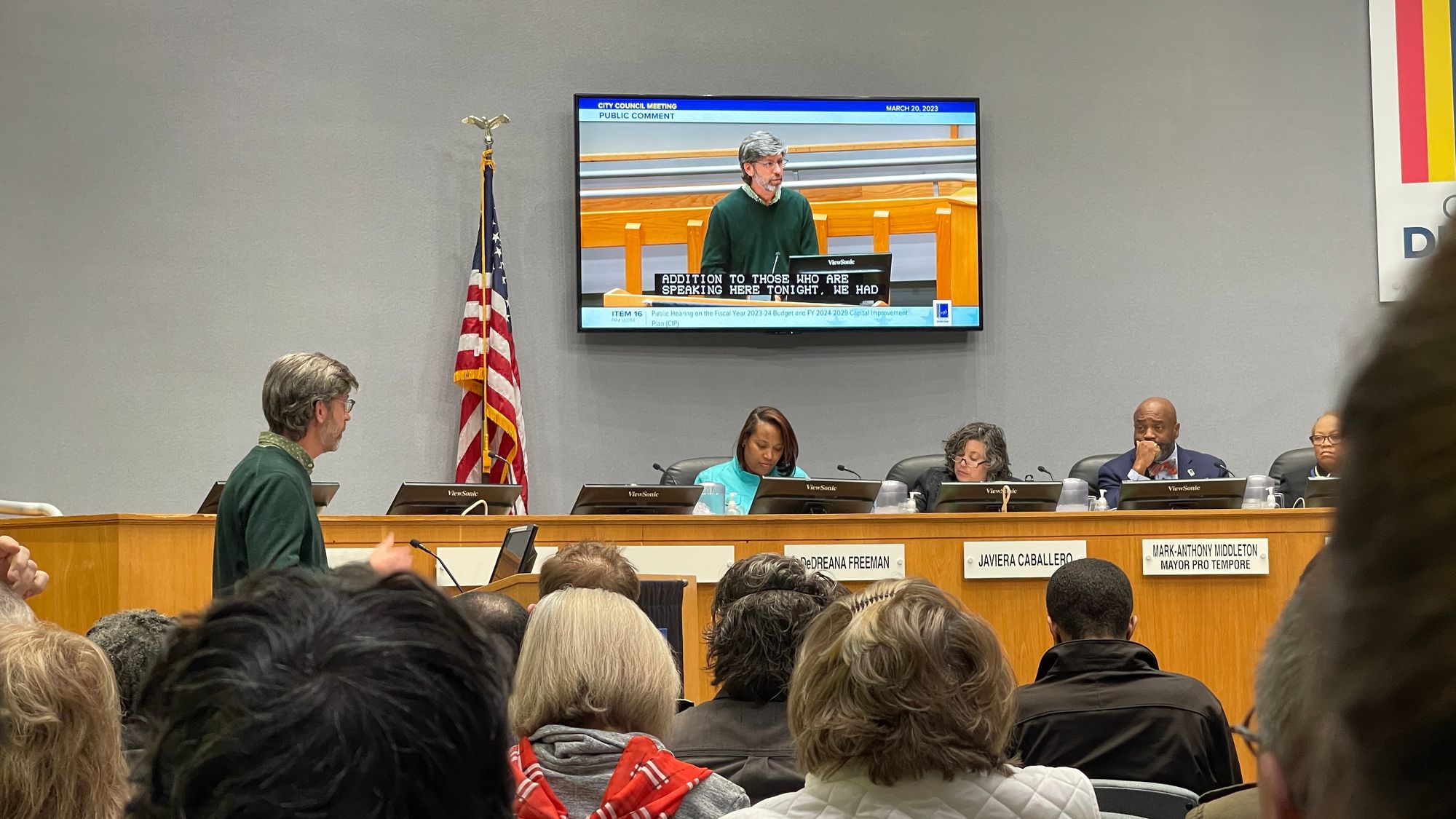
Okay, journalist hat off for a second.
To be honest, I had a hard time sitting through the meeting. I’ve been a full-time bike commuter for almost a decade. The trauma of navigating the urban environment is one I’m intimately familiar with. But listening to Allison talk about her husband Matt caused me visible anxiety. My knee wouldn’t stop shaking. I could barely look up at the podium.
I knew this lifestyle wouldn’t be easy when I started. Being a bike commuter in a city not designed for you is an uphill battle. What charged me to even attempt it was a sense that my choice would be a tiny sign of commitment to protect the health of the planet and improve my own health.
Anne Lazarides spoke right after Allison. She articulated something I think about every time I set out to ride:
“As one of the folks who rarely gets past the 101 excuses for not driving, it strikes me as inappropriate to burden the very people who are keeping down their carbon footprint with needless risk when alternatively we could be demonstrating our appreciation by taking every opportunity to look out for the safety of bikers and pedestrians.” (21:25)
Cyclists aren’t looking for a gold star or a pat on the back. Just don’t go out of your way to make our lives miserable. Please. I promise we will try to return the favor.
We’ll explore the city’s budget process more in CIVICS 101.
Journalist hat back on.
Now, let’s talk about something way less controversial…
An Update On SCAD
After brief deliberation, council voted to push an official hearing on the SCAD text amendments until May 1. The split vote didn’t follow the typical pattern for development cases (though this is a unique one). Councilor Middleton joined the trio of Freeman, Holsey-Hyman and O’Neal in pushing the conversation to give people in the community and on council more time to digest the document.
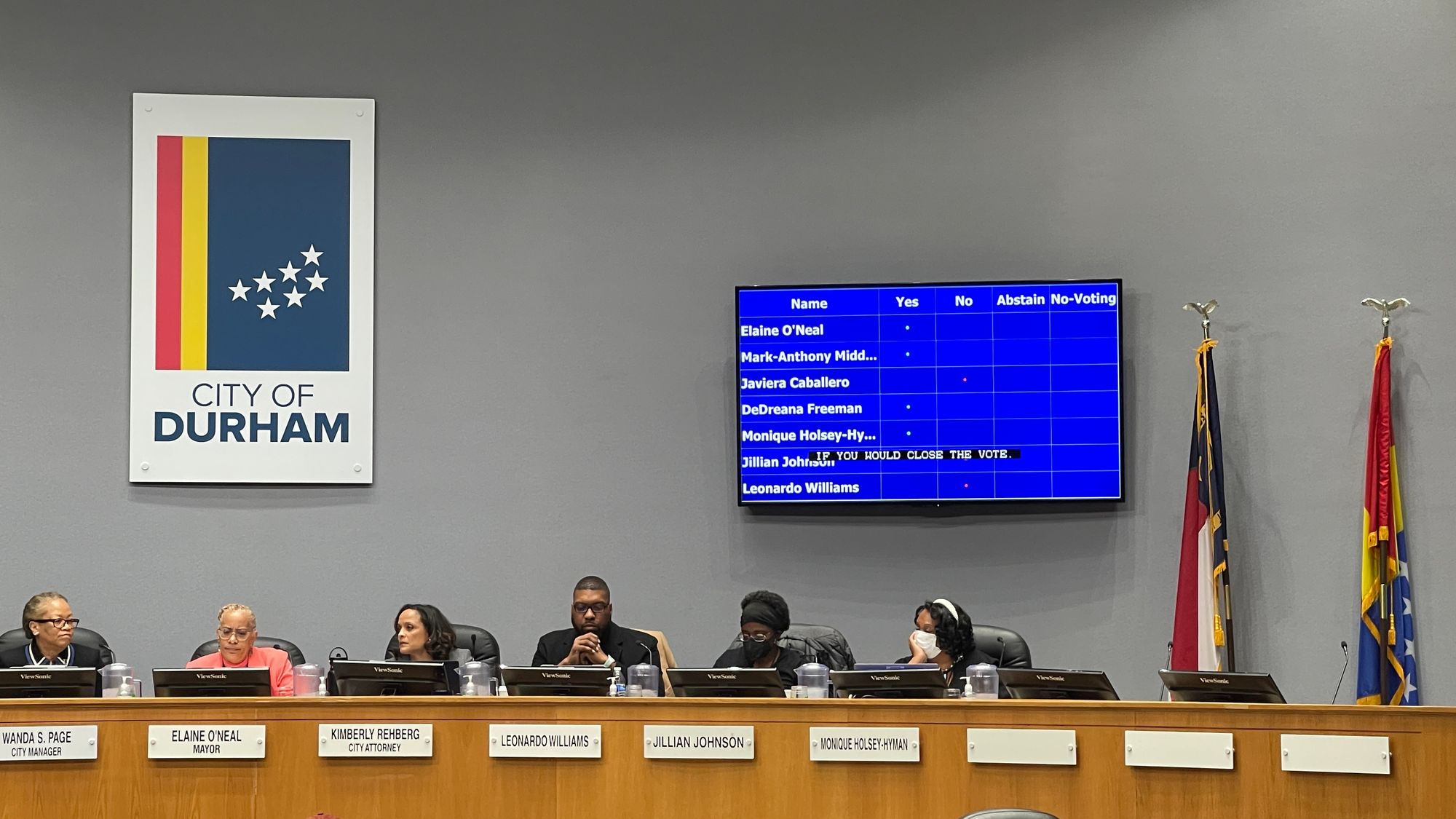
Councilor Caballero, one of the three dissenting votes, requested a compromise between hearing the case at Monday’s meeting and the proposed May 1st date.
I would like to figure out if we can hear it before May 1st. I think that is unfair. I think that the folks who have been doing the engagement around this — this came to JCCPC (Joint City-County Planning Committee) twice. The documents have been out in the public for a long time. There are several neighborhood groups that have had these things since last July so they’ve had ample opportunity to review. I also understand that not all of my colleagues sit on JCCPC so they haven’t had the same opportunities that I have had and some of my other colleagues so I want a compromise. I do not want May 1st. I think it’s unfair and I also acknowledge that not everyone is in the same position as I am around their comfort with the document. I understand it’s unwieldy and very technical so that is what I’m proposing is a compromise date well before May 1st. (2:34:19)
That request was ultimately denied.
Many of you have probably read this article published by INDY Week on the SCAD proposal. It’s a great primer for how to understand the conversation around the text amendments. But that seems to be the issue in itself. There is a lot of chatter around the proposal in community meetings and on social media without much substantive debate about the actual text. Push back I’ve heard from proponents of the document is that “no one has even read the thing.” To that I say, can you blame them?
To Councilor Caballero’s point, the “Simplified Code” is still difficult to read and understand without a certain amount of base knowledge of city planning and Durham’s current ordinances around development. Writing this newsletter has given me some insight and I still have difficulty with the jargon and references. Organizers around SCAD have held a number of community meetings to share more details and answer questions that might arise, but it doesn’t seem to have garnered the groundswell of support the group hoped for, or at least not enough to convince council to take a vote.
The conversation around the text amendments took a turn when certain people and their political affiliations, among other things, were brought into the mainstream by the INDY article. Recently, discourse around SCAD has been more about optics than substance. But optics matter. Mayor O’Neal said there were roughly 43 cards for people waiting to speak on the subject. (2:39:21) The makeup of the room for SCAD looked different than, say, the folks speaking on behalf of HEART just one hour before.
This challenge is not unique to Durham. Our friends in Raleigh are facing the same challenges.
“Other city council members, including Harrison and Mary Black, agreed community engagement was an important piece of missing middle. Although the city was able to get a more diverse population to participate in the missing-middle meetings earlier this year, young people, renters, and people of color were still underrepresented.”
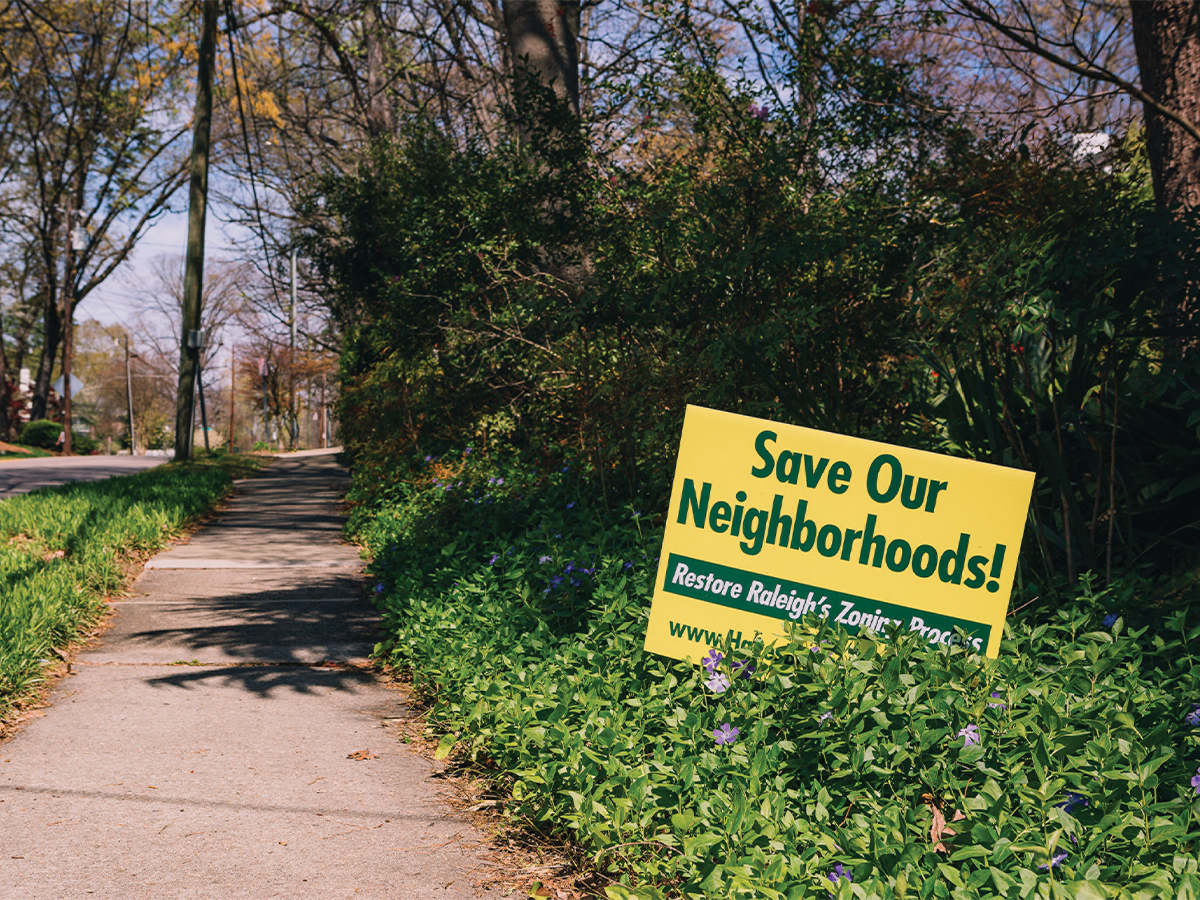
If SCAD is going to improve the lives of people who aren’t already developers, or who live in parts of Durham that will be significantly affected by these proposed changes to the UDO (that’s a lot of us), it is incumbent upon the proponents of SCAD to prove that. Who SCAD will help in theory is different than who it will help in practice. How do you get those folks to advocate on your behalf?
CIVICS 101 - Budgets
Budget hearings are a powerful and important way to have your voice heard as a citizen. After all, it’s your money. Why shouldn’t you have a say in how the city is spending it?
Here’s a quick video on how that budget is put together.
As of this fiscal year (2022-2023), the City of Durham has a total budget of $568.9 million. (For contrast, the 2023-23 budget for the City of Raleigh is $1.14 billion). That’s compared to $529.7 million in 2021-22, and $395.9 million in 2012-13; nearly $170 million more in 10 years.
In that same 10-year timeframe, Durham’s population has grown by about 50,000 people. That’s an average of roughly $3400 in additional revenue per new person that lives to Durham.
How a city brings in revenue and administers taxes determines a lot about how our communities are built and function. For example: many folks want to get rid of parking. Street level parking, parking decks, all of it. People hate paying for parking. Some folks would rather have wider, more well-maintained sidewalks, or bike lanes instead. Well, if the city eliminates parking, they lose a source of income. So how do they pay for the maintenance of those sidewalks, or expansion of those bike lanes? Please don’t say charging for bike parking…
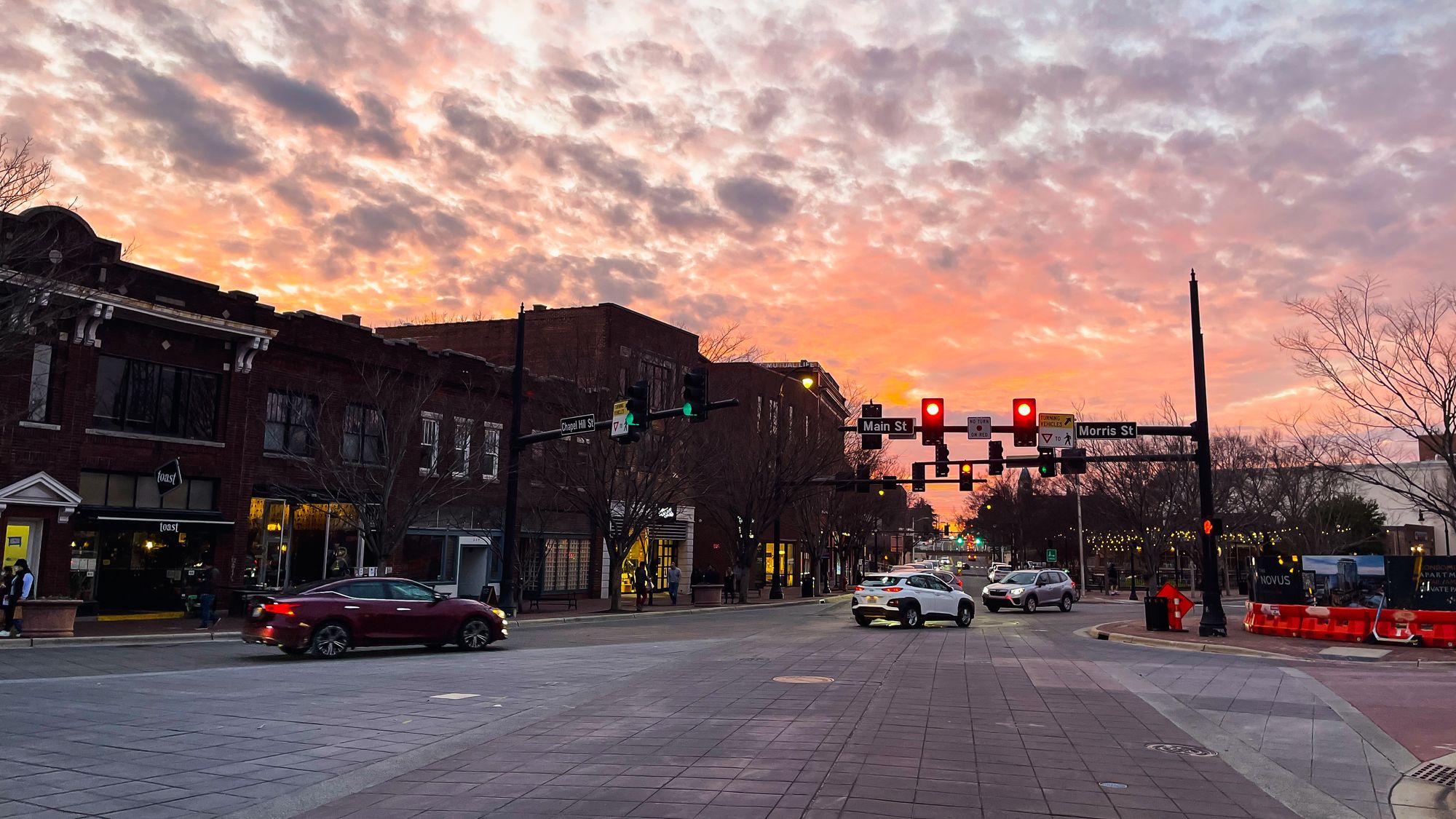
The city would have to pull different levers to make up for lost revenue. One of those levers might be increased property tax which could instigate more displacement. Perhaps a safer, more abundant sidewalk network would stimulate more sales tax from local businesses because of the increased patronage. These are the types of calculations cities have to consider when creating their annual budget, and it’s why your participation is essential so the city can make informed decisions about the needs and desires of the community.
There is another budget hearing coming up on June 5. How do you want the city to spend your money? Let me know in the comments below.
Additional Items


